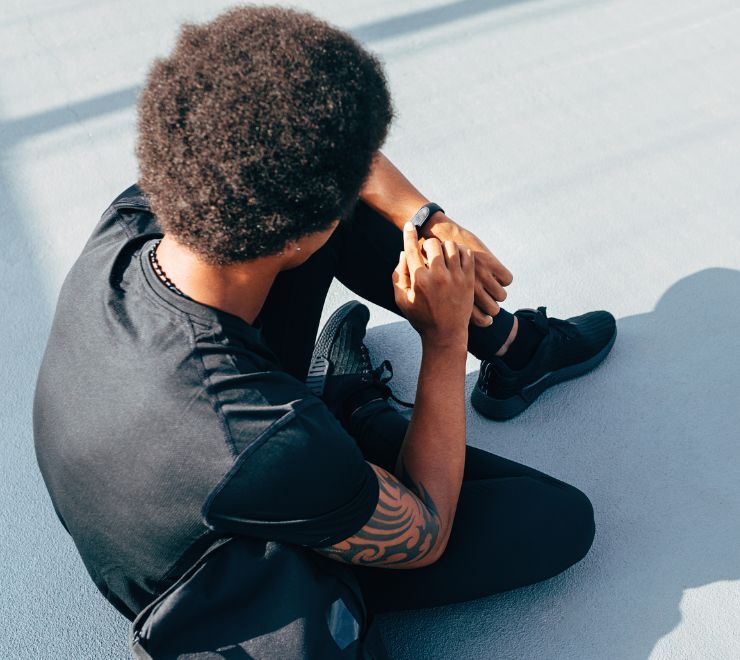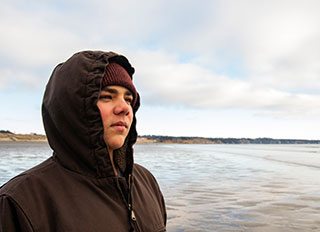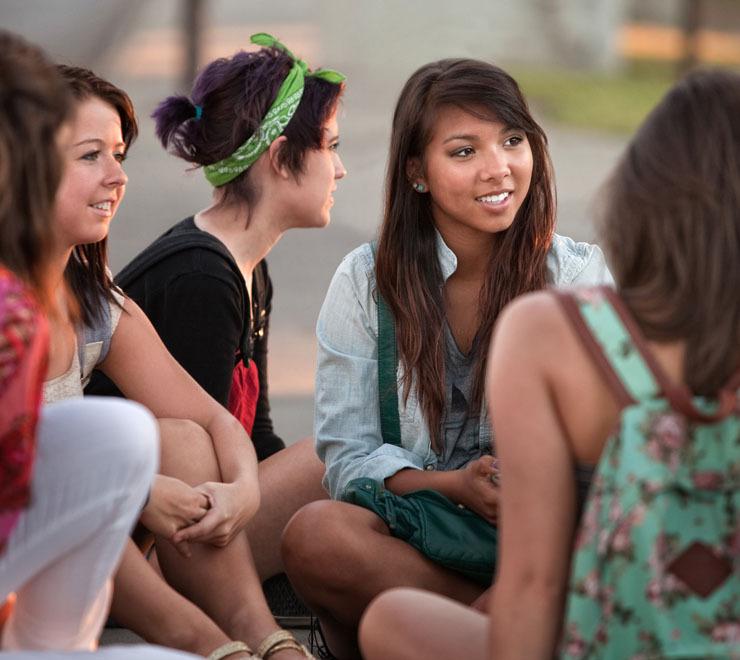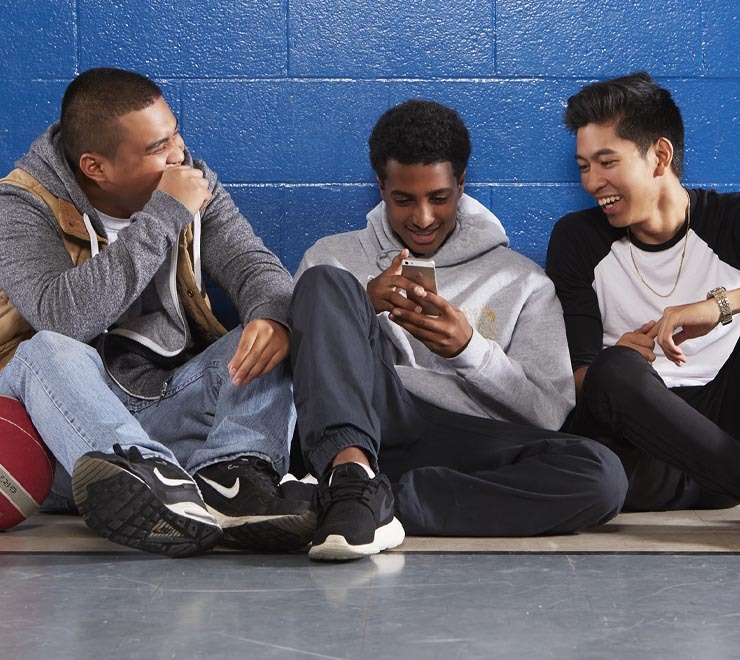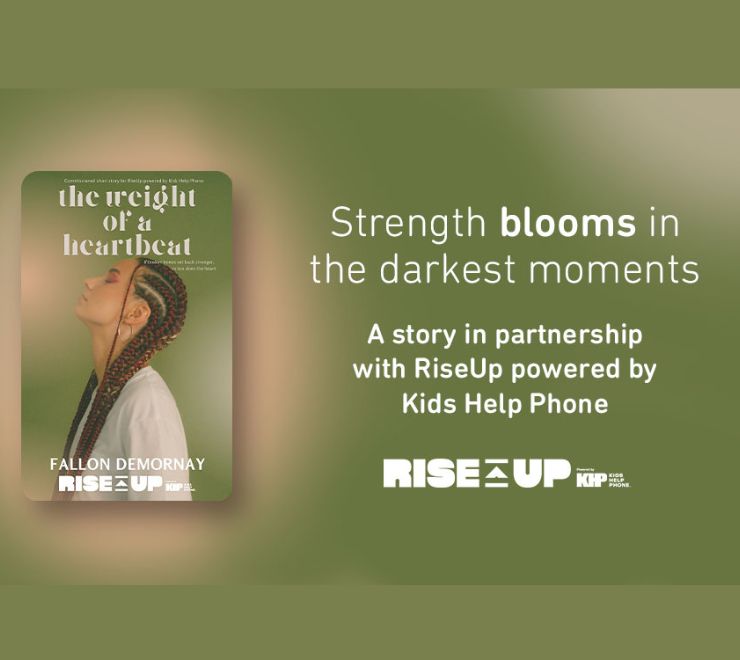Puberty is a time of major change for all young people, both physically and emotionally. People assigned female at birth may experience new things like breast development, periods and more. It’s good to have an idea of what to expect during puberty.
Throughout this content piece, Kids Help Phone uses the term people assigned female at birth to refer to individuals who are born with certain sex organs, hormones and/or chromosomes. However, it’s important to note that people may have a different gender identity than the sex assigned to them at birth. As well, people may use different words for their body parts than those used in this piece. Kids Help Phone supports everyone in using whatever terms fit best for them.
What do I need to know about the reproductive system?
The reproductive system in people assigned female at birth often includes:
- ovaries (two sacs in the pelvis that produce/release eggs and hormones)
- fallopian tubes (tubes that carry eggs from the ovaries to the uterus)
- a uterus (a muscular, pear-shaped organ)
- a cervix (a channel that connects the vagina and uterus)
- a vagina (a tube that connects the outer genitals/vulva to the cervix)
- a vulva (the parts you can see on the outside, including the clitoris, labia and openings of the vagina and urethra)
When does puberty start?
Although there’s no way to tell for sure when puberty will begin, it usually starts between age 10 and 13 and lasts two to four years. Around this time, you may begin to notice changes to the way you look and feel. This may mean you’re starting puberty. However, it’s important to remember everyone develops at their own pace.
At the start of puberty, part of your brain (the pituitary gland) releases hormones, which tell the ovaries to start making other hormones called estrogen and progesterone. These hormones cause more changes throughout the mind and body.
The first signs of puberty happen gradually and are usually visible. You may:
- grow taller (also called growth spurts)
- develop breasts
- gain weight
- see the rounding and filling out of hips
What else happens during puberty?
During and after puberty, you may also experience the following:
- Hair growth: you may notice more body and facial hair, or that it gets thicker and darker. Hair growth most often happens under the arms, on the legs, on the face and around the pubic area.
- Pimples: during puberty, the body may make extra oil, which can clog the skin’s pores. This buildup of oil and bacteria can cause small, pus-filled bumps known as pimples, zits or acne. Pimples commonly appear on the face, back and chest.
- Sweat: during puberty, sweat glands become more active to help control the body’s temperature. You may notice that you’re sweating more than you used to. The sweat your body produces may also mix with bacteria on your skin and give off an odour.
- Sexual arousal: as the body goes through puberty and matures, it becomes ready for possible sexual activity. Around this time, you may start to have sexual thoughts, feel sexual urges and/or experience new sexual sensations. During sexual arousal, parts of the vulva may swell and the vagina may produce a clear, lubricating fluid to make sexual activity more comfortable. You may also experience an orgasm — a pleasurable feeling in your body — at the peak of sexual arousal. You may experience sexual arousal at any time, including while you’re asleep.
- Menstruation: menstruation (having periods) starts when the body’s reproductive system is fully developed and potentially capable of getting pregnant. Menstruation usually begins around age 12 or 13 (although age can vary, it’s generally about two years into puberty) and happens about once per month afterward. Some people experience symptoms before/during their period such as mood changes or cramps. This is known as premenstrual syndrome (PMS).
- Discharge: the cervix may make a white discharge (also called cervical mucus) in between periods that is sometimes cloudy and sometimes more clear. You may see it when you wipe after using the toilet or notice it on your underwear.
- Mood changes: during puberty, the body’s hormones are fluctuating. You may begin to experience more emotional highs and lows. If you notice a big change in your mood, thoughts or actions, it’s important to talk to a friend or a safe adult such as a doctor/nurse, counsellor or social worker.
- Relationship changes: it’s common for relationships to change as you grow up. You may begin to notice shifts in your relationships with family, friends and peers as your mind and body mature. You may also start to feel sexually attracted to other people. Your relationship with yourself (e.g. your body image and self-esteem) may also transform during puberty as you learn more about who you are.
If you have any questions or concerns about puberty, it’s important to talk to a health-care professional or another safe adult for support.

